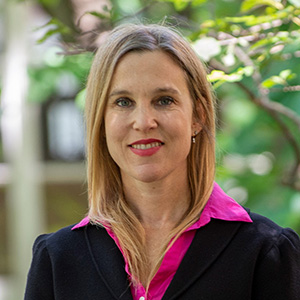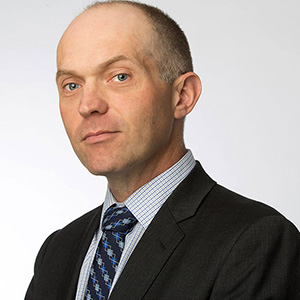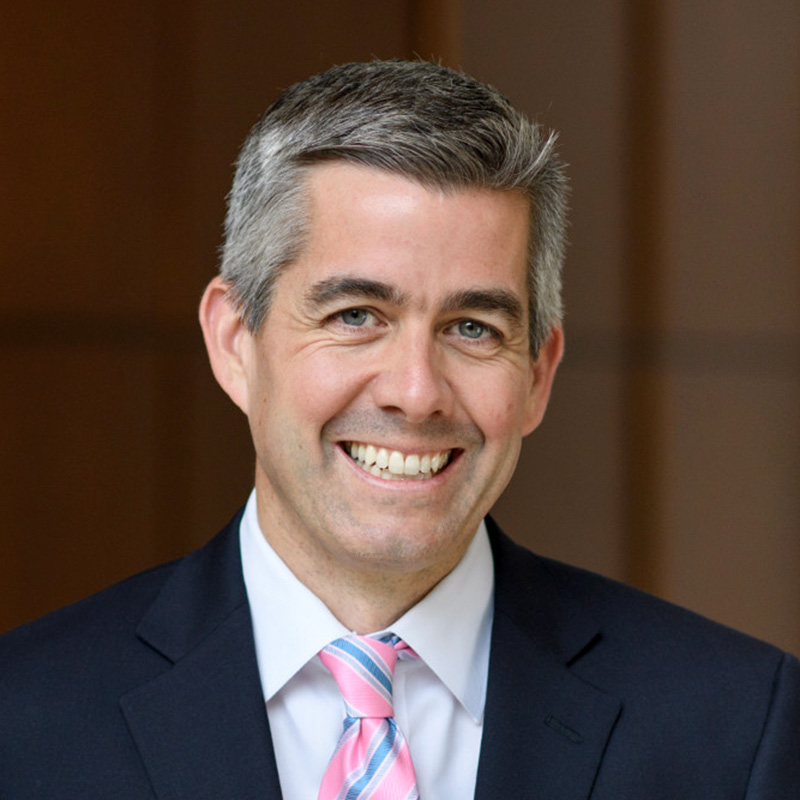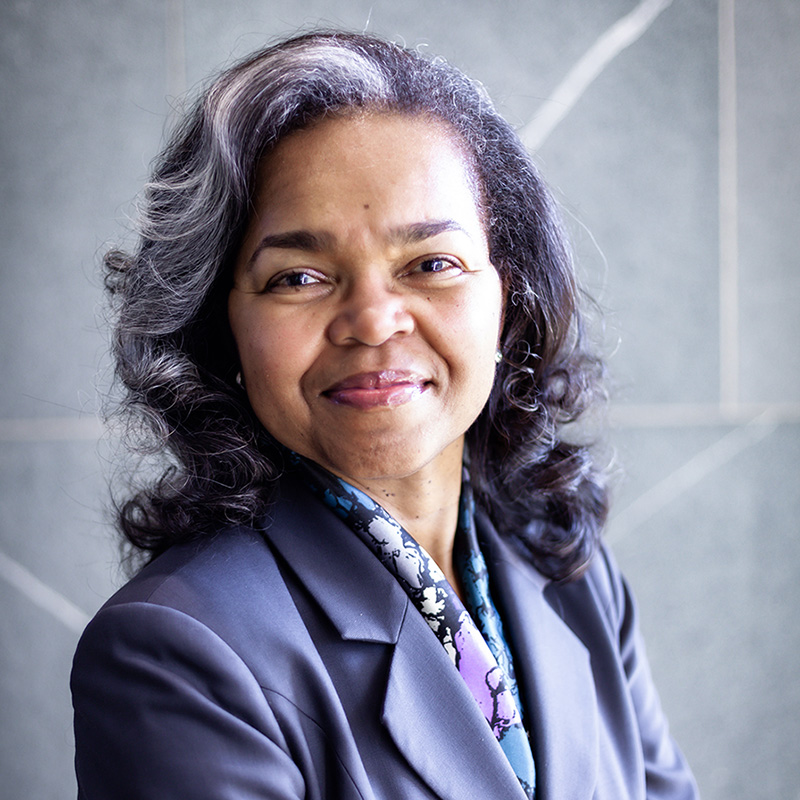Increasing impact and eminence
TONJA JACOBI
SCOTUS expert joins faculty
By A. Kenyatta Greer

Jacobi is currently a professor of law at Northwestern Pritzker Law School. She holds a PhD in political science from Stanford University, a master’s degree from the University of California, Berkeley, a law degree with first class honors and an undergraduate degree with first class honors, both from the Australian National University.
Professor Jacobi’s high-impact research has been cited more than 1500 times, and Justice Sonia Sotomayor has cited Jacobi’s “Justice, Interrupted” as having influenced the U.S. Supreme Court’s approach to oral arguments. “My work focuses on the Supreme Court and how they fit within the legal and political system. It raises important issues of legitimacy and the role of the Court in shaping the most divisive issues,” she explained. “I also write extensively in constitutional criminal procedure from various perspectives: doctrinal, empirical, and some game theory.”
Joanna M. Shepherd, vice dean and Thomas Simmons Professor of Law, shared her anticipation over Jacobi’s hire. “We are so excited that Tonja Jacobi is joining the Emory Law faculty. Professor Jacobi is one of the most accomplished and influential scholars in the areas of judicial politics, judicial and advocate behavior, and criminal procedure. Her rigorous empirical work has been path-breaking and impactful, not just in the academy but in the judiciary as well. The faculty is fortunate to have her as a new colleague, and I know she will have a tremendous influence on our students.”
During her seventeen years as an academic, Jacobi has published more than forty articles in leading law reviews and peer reviewed journals along with numerous book chapters. She also regularly writes Op Eds in periodicals such as the Washington Post and the New York Times and has written in numerous other forums, such as SCOTUSBlog, Forbes, Aeon, and Harvard Business Review. In the last year, Jacobi had a series of three related Op Eds published on Supreme Court reform, congressional reform, and election reform in Bloomberg, as well as publications in the New York Times and the Washington Post about Supreme Court oral arguments and the Court’s approach to criminal procedure.
“I came to give a talk at Emory about four years ago and had such a wonderful experience with an engaged, positive audience. I thought then what a good place it would be to work. Emory has a generally amazing reputation. I know and have good relationships with a few members of the faculty there, and the strength of your public law faculty is astonishing. I believe I will contribute to that high standing.”
Jacobi will join Emory in July 2022, adding her expertise to Emory Law’s strategic focus on research and teaching related to litigation and ethics.
MATTHEW SAG
Emory Law welcomes expert in IP and AI
By A. Kenyatta Greer

His primary specialty is intellectual property, and he is particularly well known for his contributions to empirical studies of intellectual property and copyright theory. Professor Sag’s widely cited scholarly work has been published in leading journals, including the Georgetown Law Journal, the California Law Review and the Notre Dame Law Review. He is one of the leading U.S. experts on copyright issues raised by text data mining research, including the use of text data mining in conjunction with machine learning and AI — one of the core legal issues in law and AI.
From 2013 to 2015, Sag was the principal author of an influential series of amicus briefs filed on behalf of “Digital Humanities and Law Scholars” in the landmark HathiTrust and Google Books lawsuits. These briefs were cited in the judgments and discussed at multiple oral arguments. Since 2016, he has served on the Advisory Board of the HathiTrust Research Council, advising on copyright and related issues in relation to academic digitization and text data mining research.
He was part of the faculty and organizational team behind the Building Legal Literacies for Text Data Mining Institute (2020), funded by a grant from the National Endowment for the Humanities. He was a key advisor to the clinical team at the Samuelson Law Technology & Public Policy Clinic at UC Berkeley in their successful application on behalf of the Authors Alliance for a new exemption to DMCA section 1201 to enable text data mining research on e-books and films.
“Professor Sag’s theory of ‘non-expressive use’ in the context of copy-reliant technology has become the leading analysis of why text data mining in AI is fair use and does not violate copyright law, influencing both other academics and the courts. Professor Sag’s scholarly work in emerging issues relating to Copyright and Artificial Intelligence will add to Emory Law’s national and global research profile and his leadership in IP will directly benefit Emory Law students in the classroom and beyond,” says Dean Mary Anne Bobinski.
AI.Humanity is Emory’s new hiring, research, and scholarship initiative exploring the intersection of artificial intelligence and other disciplines within the university. Over three to five years, Emory University will hire 50 to 60 faculty members with a focus on, but not limited to, four topical areas:
- AI and Health
- AI and Social Justice/Law
- AI and Business/Economics and Entrepreneurship/Law
- AI and the Humanities and Arts
These hires will create a vibrant and coherent research and teaching community that represents the diverse interests of Emory’s schools and units and expand offerings to undergraduate, graduate, and professional school students.
“I’m particularly excited by the AI Humanity initiative. As a society we’re on the cusp of yet another great technological transformation, and it’s exciting that Emory wants to be on the cutting edge of that,” Sag said. “I’ve been at the forefront of investigating copyright issues and AI for over a decade now. A lot of my work involves talking with people in other areas in computer science and humanities and libraries. My research is already very outward looking. Helping other researchers navigate the legal issues that come up in their research. That’s something I plan to keep doing.”
Sag will join Emory Law in July 2022, adding his expertise to Emory Law’s strategic focus on research and teaching.
MARK NEVITT
Environmental law scholar joins faculty
By Susan A. Clark

His current research focuses on how climate change is destabilizing numerous areas of law and climate change’s security implications. Nevitt’s scholarship has appeared or is forthcoming in the Washington University Law Review, Boston College Law Review, Georgia Law Review, U.C. Davis Law Review, Yale Journal of Regulation, and Harvard Environmental Law Review. He is a frequent contributor to NYU Law’s Just Security blog, Lawfare, and Penn Law’s Regulatory Review; and his comments or writing have also appeared in the Washington Post, Slate, Newsweek, and The Hill. He is also a frequent podcast guest and contributor, appearing on the American Bar Association National Security Law Today Podcast and Penn Kleinman Center for Energy Policy Podcast, among others.
“Professor Nevitt’s expertise on climate change and national security will be a welcome enhancement for Emory Law’s environmental and natural resources program,” says Mary Anne Bobinski, dean and Asa Griggs Candler Professor of Law. “Accelerating climate crises will require new legal and policy solutions and our students will benefit from learning how this field of law impacts the security, health, and welfare of every citizen.”
Nevitt joins Emory from Syracuse University where he served as an associate professor of law. Prior to that, he served as the Distinguished Professor of Leadership and Law at the US Naval Academy in Annapolis, MD. From 2017 to 2019 Nevitt was a Sharswood Fellow and lecturer-in-law at the University of Pennsylvania Law School.
In 2017, Nevitt was honorably discharged with the rank of commander after 20 years of service in the US Navy. As a naval officer, he served as both a tactical jet aviator and held several important roles in the Judge Advocate General Corps (JAG), including Regional Environmental Counsel for the Department of Defense in Norfolk, VA; International Law Advisor, US-Iran Farsi Island Incident with the US Fifth Fleet/Naval Central Command; and Attorney-Advisor & Deputy Division Director, Administrative Law within the Office of the Judge Advocate General at the Pentagon. As an aviator, he flew more than 1,000 flight hours and accumulated more than 290 aircraft carrier-assisted landings. He was awarded the Navy’s Air Medal for “meritorious achievement, superb airmanship, perseverance, and loyal devotion to duty in the face of hazardous flying conditions.” He was commissioned as a naval officer from the University of Pennsylvania’s Naval ROTC program.
Nevitt earned a JD from Georgetown University Law Center, where he also completed his LLM, with distinction, in Environmental Law. He earned his BSE from The Wharton School at the University of Pennsylvania. He is a member of the District of Columbia Bar (active) and Maryland Bar (inactive).
TERRI MONTAGUE 14T 14L
Scholar, attorney, leader joins CSLR
By Justin Latterall

Before joining HUD, Montague was the founding president and CEO at Atlanta BeltLine, Inc., where she launched and led early implementation of the transformative $4.8 billion BeltLine project that is enriching Atlanta with parks, trails, affordable housing, transit, environmental remediation, and economic development. Montague has earned degrees in law and theology (Emory), religion (Gordon-Conwell), city planning and real estate development (MIT), and economics (University of Chicago).
“It is a true joy to welcome back to our CSLR community one of our brilliant former students,” said John Witte, Jr., director of CSLR. “Terri Montague brings to CSLR deep learning, wide experience, and exemplary leadership in society, church, state, and economy. Her career has been a textbook example of how to integrate theory and practice, faith and works, stewardship and service in the field of law and religion. We are privileged to have her as an academic colleague and to join a formidable team of powerful leaders in our center.”
Montague will be McDonald Distinguished Senior Fellow and Senior Lecturer in Law, a fellowship made possible by a generous gift from the McDonald Agape Foundation (MAF). “The McDonald Agape Foundation could not be more thrilled to support Terri Montague as she joins the outstanding team of scholars at CSLR,” said Mark Berner, senior program officer at MAF. “Terri is a rare talent who combines an outstanding academic pedigree; accomplished civic, executive, and public policy leadership experience; and deep Christian faith graced with the bridge-building and thought leadership skills so needed to help address America’s racial and economic divides.”
Montague’s scholarship, teaching and community engagement work will focus on some of the most pressing challenges facing communities in the United States. “This is an invaluable and timely opportunity to bring my leadership voice, multi-disciplinary perspective, and practical experience to Emory,” Montague said. “I look forward to collaborating with other Emory faculty and community stakeholders to educate for systems change and for more equitable, communities of the future.”
Email the Editor



